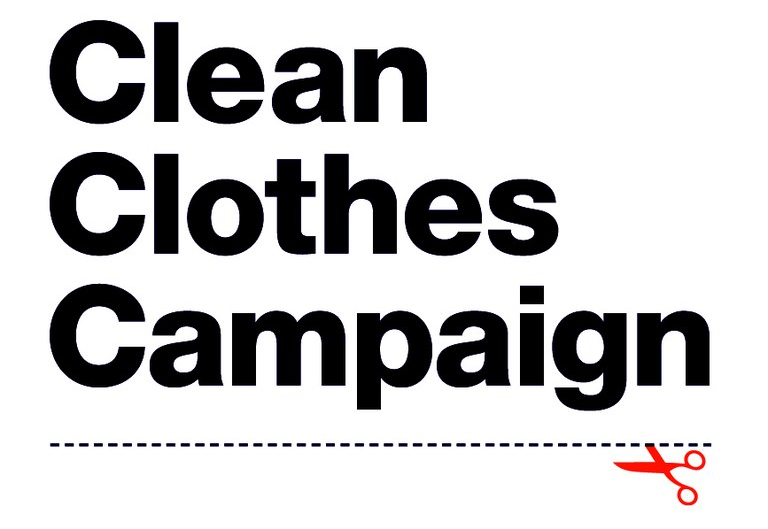BLOG - Leicester's coronavirus lockdown is no surprise to its garment factory workers
As the UK’s first local coronavirus lockdown was imposed in Leicester earlier this week, another shocking story joined it in the headlines.
The report we compiled at Labour Behind the Label told a stark tale: of lockdown breaches, furlough fraud and conditions of modern slavery in Leicester’s garment factories. After failing to heed warnings to properly monitor conditions there, Alok Sharma, the business secretary, has finally been forced to say he will investigate.
Together, the workers’ reports we compiled make for grim reading, characterised by intimidation from managers and total disregard for workers’ health. We revealed that some factories operated at 100% capacity throughout the lockdown, with little to no social distancing or protective measures in place. Leicester’s garment factories are often housed in cramped, poorly ventilated buildings, posing an especially serious transmission risk at a time of a public health emergency.
At one factory employing over 80 people there have been around 15 Covid-19 cases, including the supervisor. When one worker applied for statutory sick pay, his boss told him that he would not receive it and ordered him to keep working through the illness. Some workers said they were told to continue working despite testing positive for coronavirus, and were warned not to tell anyone. Others disclosed to their bosses that relatives in the same household were ill with coronavirus, but were ordered to keep working, going against government guidance to isolate.
These exploitative conditions are appalling, and yet to place the blame entirely on factory owners would give the companies profiting from the exploitation a free pass – and fail to tackle the root of the issue.
Whilst brands struggle to stay afloat during the crisis, one notable exception bucks the trend. Boohoo reported 44% growth in the first quarter, with shares going up by 22%. Boasting a market value of £4.6bn, Boohoo recently announced a controversial bonus scheme that could pay bosses bonuses of up to £150m. Whilst other brands’ trading was disrupted during the lockdown, Boohoo’s sales were up 45% in the three months up to May.
Boohoo orders account for around 75-80% of production in Leicester’s garment factories. With a surge in production and sales, why didn’t authorities and regulators ask crucial questions about how production could possibly increase safely during the pandemic?
Complex and secretive supply chains make it hard to enforce regulations and monitor labour practices. The fast fashion model used by Boohoo is characterised by small-batch orders with a fast turnaround. This model encourages subcontracting in order to meet low prices and quick production times. Labour Behind the Label has long campaigned for Boohoo to take the first step in improving labour rights in their supply chain by increasing transparency, and this illustrates why.
Although the Covid-19 crisis has caused grim new problems for Leicester’s garment workers, the exploitation detailed in the report is not new. Concerns about working conditions and illegally low pay in Leicester’s factories have been subject to press investigations, and even the focus of government reports. Yet there has been little meaningful action to tackle these issues, or the social and economic inequalities that allow exploitation and poor business practices to take place.
Most garment workers in Leicester’s factories are from ethnic minority backgrounds. Around a third of workers were born outside the UK. Migration status, language barriers and higher levels of unemployment push workers to accept poor working conditions and illegally low pay, having little other option. Meanwhile the government’s hostile environment policy has taken the form of immigration raids in Leicester’s garment industry, rather than rooting out illegal work practices and the poor purchasing practices that drive them. Vulnerable migrant workers fear speaking out against exploitative employers in case their migration status is weaponised against them
The Covid-19 crisis has laid bare the inequalities in the garment industry. We need far greater transparency in our supply chains, and governments and clothing brands alike must commit to due diligence to protect human rights in the industry.
For many years, citizens have been reduced to consumers. We are told that our power lies in the personal choices we make about where we spend our money. But this puts responsibility on individuals, rather than the brands and governments who allow this exploitation to take place. We need to harness much more than just our consumer powers, and demand change more vocally. Sign petitions, join campaigns and write to brands demanding that they do better by their workers – let’s make this a moment of change.
Authored by Meg Lewis, Labour Behind the Label for The Guardian
3 July 2020
